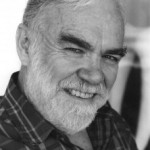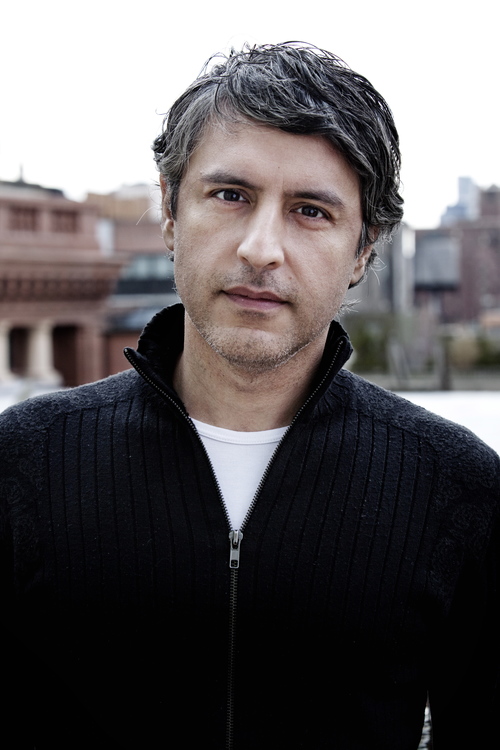October 12th, 2013

Atlas’s stint at the New York Times included his editing its book review section.
Studying the craft of biography and the biographers who have shaped it, writing biographies, editing and publishing the works of other biographers: In a career that has spanned almost 40 years, James Atlas has done it all, along with working as an editor for the New York Times and a writer for many other major periodicals.
Now, Atlas is making news in the world of biography again, serving as the editor for Amazon’s new Icons series of short-form biographies. The initial run of twelve titles, available both electronically and in hard cover from Houghton Mifflin Harcourt, will debut this December with Jay Parini’s Jesus: The Human Face of God.
Atlas is also at work on The Shadow in the Garden, a book that explores his relationship to the craft of biography. It’s a memoir of sorts, but as Atlas told TBC, readers won’t find much about his career or personal life. Instead, Atlas said, “What I really wanted to do was write a story, a picaresque tale” that blends his experiences as a biographer with “an account of how I learned what biography is.”
The Ins and Outs of Icons
The exploration of his own life as a biographer will be full length; Atlas said he’s written 100,000 words. Now, his agent instructed him, “You can put in different words, but you can’t put in more words.” Atlas hopes to finish the book this year.
It’s the short-form bio, however, that has made Atlas a prominent publishing figure. He created the Penguin Lives series while at that publishing house, then edited the similar Eminent Lives series for HarperCollins. He also founded his own company that published short biographies, as well as other genres. As in those past ventures, Altas is using Icons to pair prominent writers from various disciplines with famous subjects.
Amazon says the books focus on “canonical figures in the culture, both historical and contemporary.” Although originally slated to come in at 25,000 words, many of the Icons titles are closer to 45,000 to 50,000 words. Atlas sees that as a good thing: “They’re really substantial books, books as we know them and love them.”
The first round of books include titles on such decidedly major figures as Joseph Stalin, J. D. Salinger, Vincent Van Gogh, and Ernest Hemingway. A somewhat more surprising figure may be filmmaker David Lynch, but Atlas said that choice reflects his desire to include influential contemporary figures from a variety of fields. Overall, Atlas sad he wanted figures “who are recognizable and yet who we can learn about and learn from.”
As for choosing the writers and their subjects, Atlas uses a process that served him well with Penguin Lives and Eminent Lives. He said he selects writers “whose work I admire and who will be galvanized by a subject.” Then, through conversations, he and the writers decide who would be the best subject. “That’s one of the most exciting things about it, this sort of psychiatric element,” he said. “We’re going to lay the writer down on the couch and figure out who interests him or her. That’s part of the creative dynamic of it.”
A press account in the Atlantic Wire announcing the debut of Icons noted that the initial list of authors had only two women—including BIO board member Anne Heller, who will write about the only female subject, Hannah Arendt. Atlas told the Atlantic Wire that two more women biographers were under contract. One of them is BIO member Megan Marshall, who will be writing about poet Elizabeth Bishop.
Biographers and Shadows
Returning to his memoir, Atlas said his notes for the project go back to at least 1995. The title came from the subject of Atlas’s last biography, Saul Bellow. How the title emerged in Atlas’s notes and what Bellow actually wrote, Atlas said, “already leads me into some of the dilemmas of writing biography.” Atlas remembered that, “Bellow described the biographer as the shadow in the garden… but looking again over my journals I found that he said the biographer was the shadow of the tombstone in the garden. So before you even open the book, we’re in troubled waters here.”
The Shadow in the Garden will trace Atlas’s years studying at Oxford with Richard Ellman, the biographer of James Joyce and Oscar Wilde, among others; the experience writing his first biography, about Delmore Schwartz; and the ten years he devoted to his study of Bellow. He will also look at the biography he didn’t write, about Edmund Wilson. Folded into that is his study of the craft of biography, including a brief look at its history. But the focus he said, is on “the way I actually studied and read about biography,” delving into his experience with such classics as Michael Holroyd’s work on Lytton Strachey. “All of that,” Atlas said, “is told in the form of a story, because one of the things that attract me to biography is that it is a story. And you can create a book that is as complicated and dense with literary style as any novel.” Atlas hopes his story is an entertaining one: “I want it to be a fun book to read.”
Given all that he’s accomplished as a writer and publisher, how does Atlas ultimately define himself? He said, “In terms of my actual trade, and profession, I am a biographer.”



